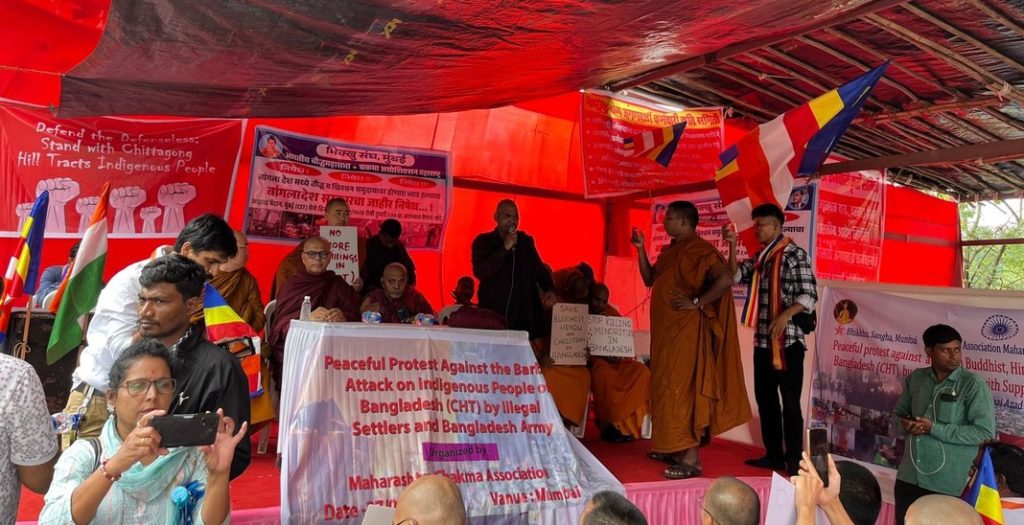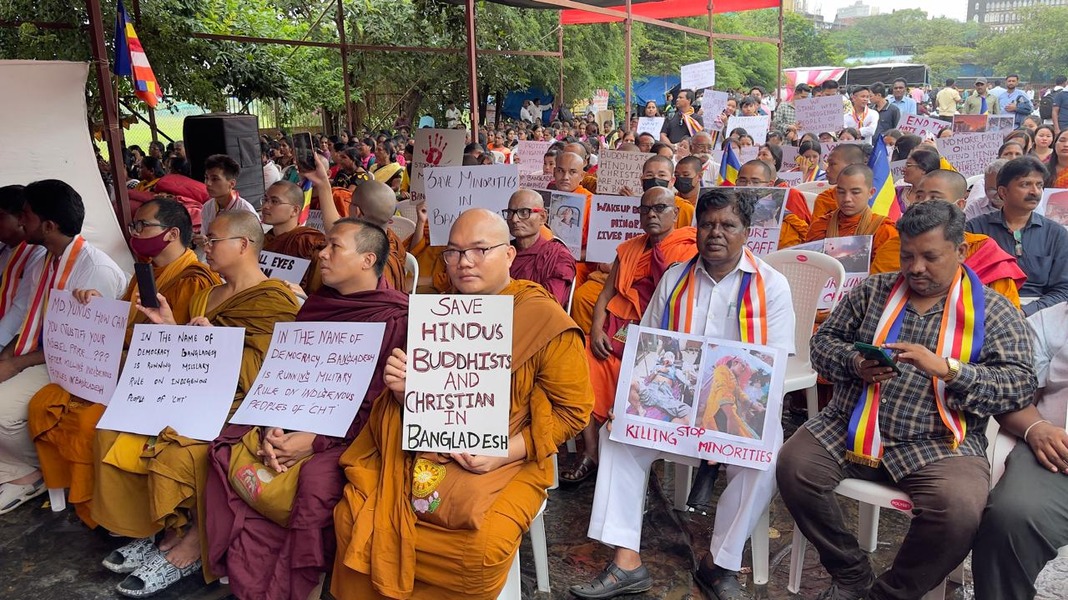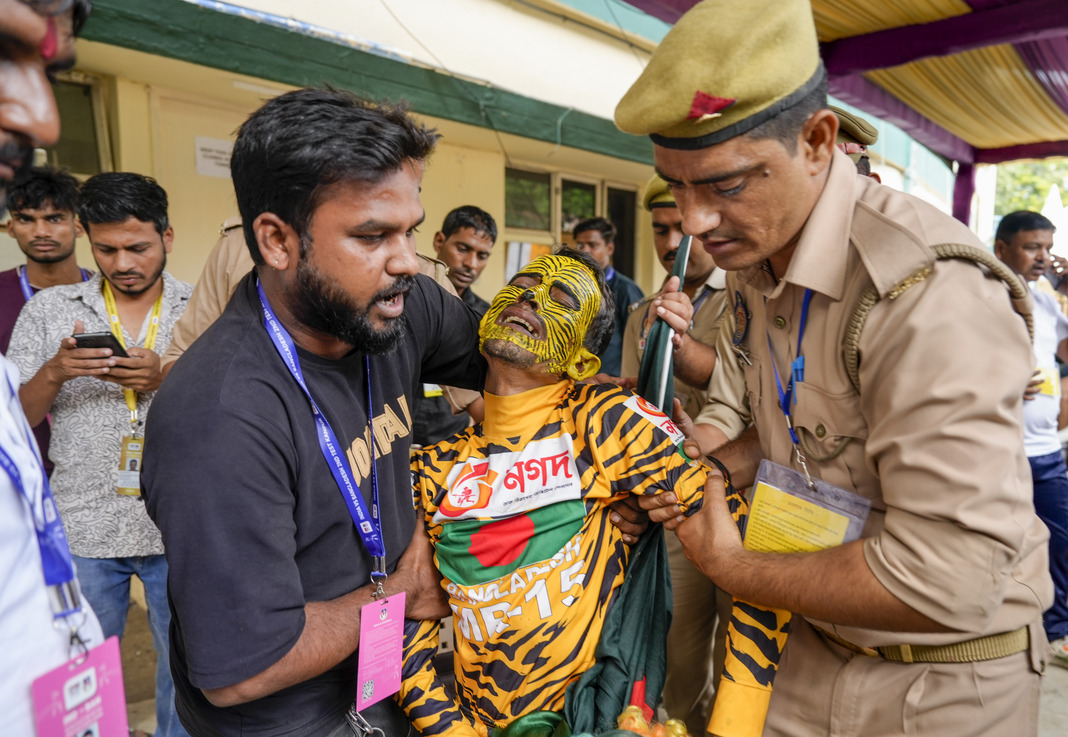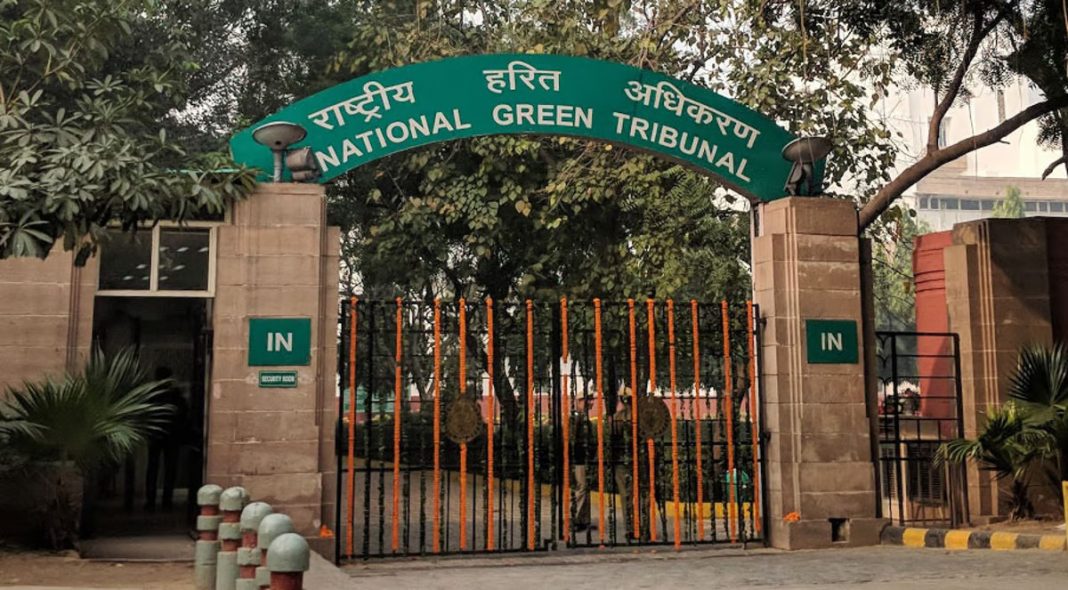Guwahati Sept 27: More than 500 members of the Chakma Association Maharashtra (CAM), Bhikkhu Sangha Mumbai, and the Buddhist Society of India staged a protest at Azad Maidan in Mumbai, demanding constitutional recognition for indigenous people living in the Chittagong Hill Tracts (CHT) of Bangladesh.
This protest was held in response to the recent violent attacks on the Chakma and other indigenous tribal communities, who predominantly follow Buddhist and Hindu religions, following the fall of the Sheikh Hasina government in Bangladesh.
The CAM strongly condemned the caretaker government of Bangladesh, led by Dr. Mohammad Yunus, for its failure to take timely action against the perpetrators of violence.

CAM submitted a memorandum to the caretaker government through the Deputy High Commissioner of Bangladesh in Mumbai, demanding justice, monetary compensation, and the establishment of an inquiry commission to hold the attackers accountable.
Additionally, CAM also submitted a memorandum to Indian Prime Minister Narendra Modi, calling for his immediate intervention to ensure justice for the victims and the rehabilitation of displaced indigenous people with appropriate compensation.
In the memorandums, they highlighted the organized communal violence that took place on September 19 and 20 in Khagrachari and Rangamati towns in the CHT, where nine indigenous people were brutally killed.
The protestors demanded equal legal protection, safeguarding of land rights, and an end to illegal encroachments in the CHT.
“We also call the Bangladesh government for the withdrawal of magisterial powers granted to the Bangladesh Army in the region, to prevent further militarization and repression,” said AS Chakma, advisor, CAM.

“In the memorandum we also urge the Bangladesh government to stop the detention and harassment of indigenous people by security forces and demanded the full and expedited implementation of the 1997 CHT Peace Accord,” Chakma said.
“A high-level probe into the attacks was also demanded to halt further atrocities against indigenous communities,” he added.
“The plight of the Chakma and other indigenous tribal peoples of the CHT dates back to the partition of India in 1947. Despite the region having a 98.5% non-Muslim population, it was awarded to East Pakistan (now Bangladesh) during partition, “said Cheng Amar Chakma, president, CAM.
“Since then, successive governments have implemented policies that marginalized the indigenous people, particularly the implanting of five lakh illegal Muslim settlers between 1979 and 1983 under President Ziaur Rahman. This drastically altered the demographic composition of the CHT, reducing the indigenous people from a majority to a minority in their ancestral land. The region has a long history of human rights abuses, and the recent granting of magisterial powers to the military has exacerbated tensions,” he added.




